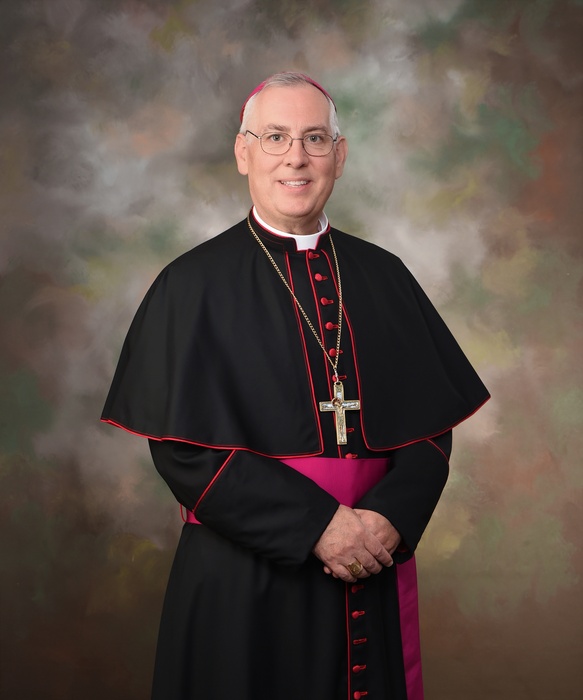April 6, 2018 at 1:53 p.m.
WORD OF FAITH
Together in Eucharist
Sometimes, we forget that the early Christian community had no concise, catechism definition of the Lord's Supper. The Eucharist was an event to be experienced, not a question to be answered.
That's why it can be difficult to preach on the Feast of Corpus Christi. If the communities we address haven't experienced the dimension of the Lord's Supper that the readings express, just mentioning it won't cause it to be. We can only reflect on what we've experienced.
The earliest followers of Jesus line up their reflection alongside that of their ancestors in the faith, people who had trod the wilderness with Moses (Dt 8:2-3, 14-16). They instinctively see parallels between themselves and the ancient Israelites. Though both communities are experiencing new-found freedom, they're still wandering around in the middle-ground between partial and complete freedom: Israelites in the wilderness between their miraculous sea-crossing and their entrance into the Promised Land; Christians between Jesus' Resurrection and His final coming in the Parousia.
God's food
Both groups need God's strength to continue the journey. Israelites receive it in the manna; Christians, in the Eucharist. Yet each community clearly understands the insight which the author of Deuteronomy shares: "No one lives on bread alone, but on everything that comes from the mouth of God."Manna and Eucharist aren't just signs of God's help in themselves; they're also symbols of God's assistance throughout the two communities' lives, even outside the experience of manna and Eucharist.
Of course, the goal of freedom and God's assistance is the same in both the Hebrew and Christian Scriptures: life. The ancient Israelites receive life through their relationship with Yahweh; Christians, through their relationship with Jesus.
So it shouldn't surprise us that John zeroes in on life in his well-known chapter 6 (Jn 6:51-58). "I myself am the living bread come down from heaven," Jesus proclaims. "Whoever eats this bread shall live forever; the bread I will give is my flesh, for the life of the world."
Lest anyone doubt the importance of the Eucharist, "Let me solemnly assure you, if you do not eat the flesh of the Son of Man and drink His blood, you have no life in you. Whoever feeds on my flesh and drinks my blood has life eternal, and I will raise that person up on the last day." Unlike wilderness manna, the Eucharist carries us into eternity.
Yet with all this emphasis on eternal life, it's easy to overlook one of our passage's most important points: "Those who feed on my flesh and drink my blood remain in me and I in them."
Unity
Because one of the early Church's most significant Eucharistic experiences is unity, it's no accident that the second reading -- the earliest biblical reference to the Eucharist -- stresses oneness (1 Cor 10;16-17)."Is not the cup of blessing we bless a sharing in the blood of Christ?" Paul asks the Corinthians. "And is not the bread we break a sharing in the body of Christ? Because the loaf of bread is one, we, man though we are, are one body for we all partake of the one loaf."
Jesus' first disciples experience life not only by becoming one with Jesus, but also by becoming one with all around them. Nowhere does this happen more intensely than during their celebration of the Lord's Supper. Understanding this, we appreciate why John, in his last Supper narrative, replaces the words of institution ("this is my body; this is my blood") with a foot washing. The unity such a submissive action reflects and fosters can't be overestimated.
(06-03-99)
[[In-content Ad]]
- Trump rules out use of force to acquire Greenland, argues it should be given to US
- Pope evaluating Trump’s invitation to join Board of Peace, Vatican’s secretary of state says
- Heads of Churches of the Holy Land call Christian Zionism a ‘damaging’ ideology
- House pro-life co-chair says he is still seeking answers from FDA over mifepristone safety review
- Pew: Catholicism down in Latin America, but belief in God ‘remains high’
- In a moment of Vatican sweetness, Pope Leo receives lambs in ancient St. Agnes tradition
- Full text: Pope Leo XIV’s general audience given Jan. 21, 2026
- New stained-glass designs for Notre Dame now on display amid ongoing debate
- To know God, we must welcome Jesus’ humanity, pope says
- Father Zanardini, top missionary anthropologist among Indigenous groups, dies in Paraguay at 83







Comments:
You must login to comment.